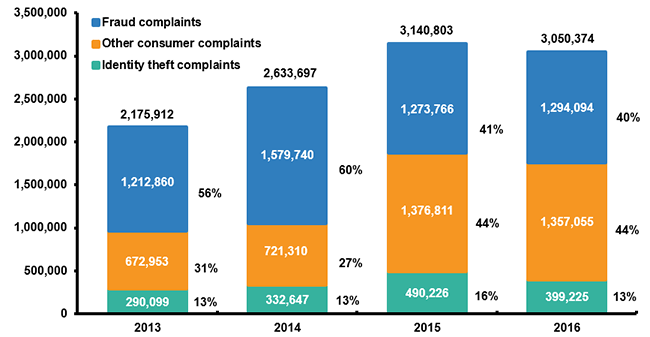Identity theft runs rampant during tax season
Here’s what to know and how to protect yourself.
Identity thieves often swipe your bank or credit card account numbers, birth date information or Social Security Number (SSN) to steal from your accounts, open a new and phony account or make illegal purchases. Some 15.4 million consumers were victims of identity theft or fraud last year, according to a new report from Javelin Strategy & Research.
All sorts of nefarious schemers can come after you via the phone or email. Your tax return offers a trove of your personal information, and this time of year scammers also prey on your apprehension about paying taxes.
The Internal Revenue Service recently published its latest list of scam warnings, freely admitting, “It’s true: Tax scams proliferate during the income tax filing season.
Among IRS tips:
- Beware of unexpected communication at the start of tax season that claims to come from the IRS.
- Don’t fall for phone and phishing email scams that use the IRS as a lure. The fake messages typically probe you for personal information thieves often pose as the IRS offering a bogus refund or warning you to pay past-due taxes – sometimes, with phone scams, threatening you with immediate arrest if you hang up.
- The IRS sends letters by postal mail and initiates no contact with taxpayers by email to request personal or financial information. This means any e-communication, such as text messages and messages over social media.
- The IRS doesn’t ask for personal identification numbers (PINs), passwords or similar confidential information for your credit card, bank or other accounts.
- If you get an unexpected email, open no attachments and do not click links in the message. Forward the email to phishing@irs.gov. See more about reporting phishing scams involving the IRS at the agency’s website.
(Note: Only IRS.gov is the website of the U.S. government’s Internal Revenue Service.)
Identity Theft And Fraud Complaints, 2013-2016
Source: Federal Trade Commission, Consumer Sentinel Network.

To protect against scams and identity theft:
- Don’t carry your Social Security card or any documents that include your SSN or Individual Taxpayer Identification Number (ITIN). Don’t keep forms containing that information in your car, either.
- Don’t give any business your SSN or ITIN just because someone who claims to represent the company asks. Give such information only when required and when positive who you’re talking to.
- Check your credit report every 12 months. Stay aware of your credit status and learn quickly about any illegal use of your credit or accounts.
- Secure personal information in your home.
- Protect your personal computers with firewalls and anti-spam and anti-virus software, updating security patches and changing passwords for your home Internet accounts.
- Give no personal information over the phone, through the mail or on the Internet unless you initiated the contact and are sure of the recipient.
- Choose a tax preparer carefully. Most preparers provide excellent service a relative few are unscrupulous. The IRS recommends watching for preparers who try to manipulate or change your income figures or make up deductions to qualify you for tax credits and unusually large refunds.
Tax season brings enough to worry about. Cross identity theft off your list.
Copyright © 2023 FMeX.